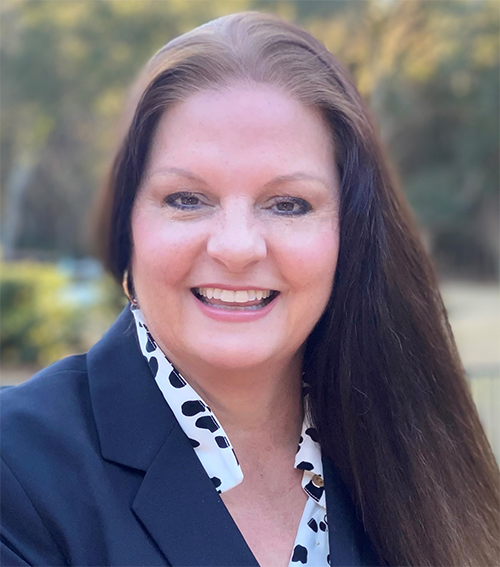By modernizing its communications with Avaya, Leon County has been able to maintain the customer promise it takes seriously: People focused, performance driven. With a more open, collaborative and secure communications environment across its various departments, the county can quickly adjust to keep pace with rapid changes and deliver experiences that matter – all while saving costs and improving productivity and availability.
Leon County is home to Florida’s capital, Tallahassee, serving approximately 275,000 citizens with up to 800 employees working across various offices including public library services, public safety, human resources, public works, tourism and administration.
The County’s IT team is unique in that it serves not only these various offices, led by the Board of County Commissioners, but also governmental partners including the Sheriff, Court Administration, Clerk of Courts, Supervisor of Elections, State Attorney, Public Defender, Tax Collector and Property Appraiser.
Another organization using the County’s Avaya system is the joint county-city Consolidated Dispatch Agency that fields calls for the Leon County Sheriff, Tallahassee Police, Tallahassee Fire Department, and County Emergency Medical Services as well as the Emergency Operations Center.

For Michelle Taylor, CIO at Leon County Government, this creates a wide-ranging set of IT needs from 24×7 support for governmental partners to scalable communications for planned and unexpected spikes in call volume.
Each constitutional office has its own smaller IT resources for department-specific application support, with Taylor and her team providing enterprise services such as network infrastructure, cloud computing, the desktop application suite including email, Internet and telephony services.
The county’s mission statement is simple but powerful: ‘People focused, performance driven.’
This is evidenced by the hundreds of citizen ideas the county has implemented in recent years to improve the programs and services it offers. For example, adding a ‘button’ to translate the county’s emergency information portal website to keep citizens of any language proficiency informed during a disaster or creating a ‘Help My Pet’ sticker to assist first responders in contacting a pet caretaker when the owner cannot be reached.
For over 15 years, Leon County has been using an Avaya phone system to handle its various communication needs with great success.
“Frankly, we just wouldn’t be able to do it without the Avaya phone system,” Taylor said. In 2005, the county realized it needed to consolidate its multiple stand-alone phone systems (in the range of 40 units total). The Avaya system transformed voice communications.
Yet much has changed since the county installed the original Avaya system, especially in recent years due to the global pandemic. The County embraced the cloud to improve citizen-facing services and lay a better foundation for growth and innovation. As a long-term, satisfied customer, the County knew Avaya would rise to the occasion to help meet and exceed its needs.
Flexibility to meet rapidly changing circumstances
Agility has emerged as the number one need for the rigid government sector which was accelerated by COVID-19. To become more adaptive and responsive, government institutions need flexible solutions that allow them to deploy ‘on the fly’ to meet quick and changing circumstances.
For Leon County, this meant everything from standing up new contact centers to field specific calls so that citizens can more quickly get the answers they need to working with the county’s emergency operations center (EOC) during the pandemic and hurricane seasons.
With the pandemic, the EOC has been at some level of activation in excess of a record-breaking 610 days.
“We need that agility in order to rise to the occasion as different needs come up,” said Taylor.
Since modernizing its system, the county has been able to flexibly pivot as various situations arise.
When the county instituted a fire services fee, it was able to quickly set up a contact center dedicated to taking calls and questions from the public (why the county is implementing the fee, how it will affect the public, etc.).
The county was able to tap existing workers across various offices to take these calls versus hiring new employees for a dedicated call center, saving costs while delivering a better experience for citizens looking for specific answers and information.
During Hurricane Hermine, the privately funded ‘211 Big Bend’ experienced a power outage and generator failure. 211 Big Bend provides 24×7 human service information and assistance and provides emotional support, crisis counseling, suicide prevention, and information and referrals.
They were invited to setup temporary shop in the Emergency Operations Center and in less than an hour, the call center was operational on the County’s Avaya platform, assuring those critical services could continue for Leon County citizens.
Streamlining and centralizing communications
Modernizing created night-and-day differences across all of Leon County’s departments in terms of how work gets done. Prior to the upgrade, each department had its own dedicated receptionist who would take calls and announce over an intercom which employee had a call on which line.
The receptionist couldn’t transfer calls and employees couldn’t even call directly to each other’s desks.
“No matter who the call was for, you’d hear the receptionist announcing calls all day long,” Taylor said.
Naturally, this affected workers’ ability to focus and get things done.
“One of the first things we realized when we got the new phone system was that most of our offices didn’t need a receptionist anymore thanks to the ability to direct dial,” said Taylor. “Because of this, we were able to reallocate those positions to fill other needs of the organization.”
The rise of work-from-home also spurred the need for a more intuitive, easy-to-use phone system.
Leon County had to rapidly move to get most of its employees working from home efficiently as COVID-19 spread.
“We had to quickly and safely transition our workforce, yet we still had our main numbers being advertised to the public and phones still had to be answered,” Taylor explained.
This could be anything from a question about trash pickup to requests for injunctions for domestic abuse, to suicidal calls where individuals may pose a danger to themselves or others.
“Whatever the need, if our citizens are calling, we must be able to connect with them,” said Taylor.
Using Avaya, the county was able to quickly meet its work-from-home needs by providing remote workers with soft phones on laptops and VPN IP phones that could be securely connected to home networks. Employees could work just as efficiently as if they were in-office while providing the same level of service callers expected.
One mobility feature that the county has found extremely useful (especially with the rise of COVID and remote work) is EC500 Avaya, which directs calls to a user’s desk phone to also ring in synchronization to another line such as their home number or mobile phone.
“This is something we have always had the ability to do, but it has become huge since COVID hit,” Taylor explained. “Before EC500, so many times, I have not been in my office – either being in a meeting or another building – and I have missed an important call. There would be some days I wouldn’t even make it into the office because I was working from another office location. The mobility features are a real benefit for us.”
In addition to mobility features and remote capabilities, Leon County Sheriff, Florida State University, and the Tallahassee Police have created The Real-Time Crime Center. This acts as a ‘shared resource center’ among the organizations that are stationed at Florida State University on the Avaya platform.
During a crisis or other local situations, they can share vital information and analyze directly from organization to organization in real-time and without delay which means faster and safer emergency response through the exchange of accurate shared information.
For example, during a potential active shooter situation, the agencies have the ability to share information immediately as it is received, provide research and analysis of the information as it comes in, and share it across all three agencies in real time, providing feedback to the first responders on location to quickly make them aware of known or discovered hazards.
This benefits all first responders, not just law enforcement, which strikes heart strings for Taylor since her oldest son is a firefighter/EMT with Tallahassee Fire Department.
Seamless collaboration using UCaaS
Leon County has made great strides with its upgraded Avaya system and plans to continue this success by phasing out its existing video conferencing platform and replacing it with Avaya’s all-in-one cloud-based collaboration application, Avaya Spaces.
County workers have been back in the office since November of 2020, yet most continue to hold staff meetings, team meetings and project meetings virtually at their desks (or elsewhere, if working remote) out of an abundance of caution.
“We’ll have people right next door to each other jumping on virtual meetings even though they can walk into the conference room,” said Taylor. “I could see this trend continuing even when we decide we’re ready to meet again in-person. Workers have grown accustomed to it, and it has also been a boon for productivity.”
The transition will allow the county to eliminate around 10 shared accounts it has with its existing provider, saving costs on those licenses and creating a better, more streamlined user experience.
Avaya Spaces empowers employees with anytime, anywhere access to information via a full range of integrated collaboration capabilities including calling, meetings, messaging, task management, file sharing and more – all billed and serviced by one provider.
Staying people focused and performance driven
By modernizing its communications with Avaya, Leon County has been able to maintain the customer promise it takes so seriously: People focused, performance driven. With a more open, collaborative, and secure communications environment across the various departments and organizations it serves, the County can quickly adjust to keep pace with rapid changes and deliver experiences that matter – all while saving costs and improving productivity and availability.
Click below to share this article

